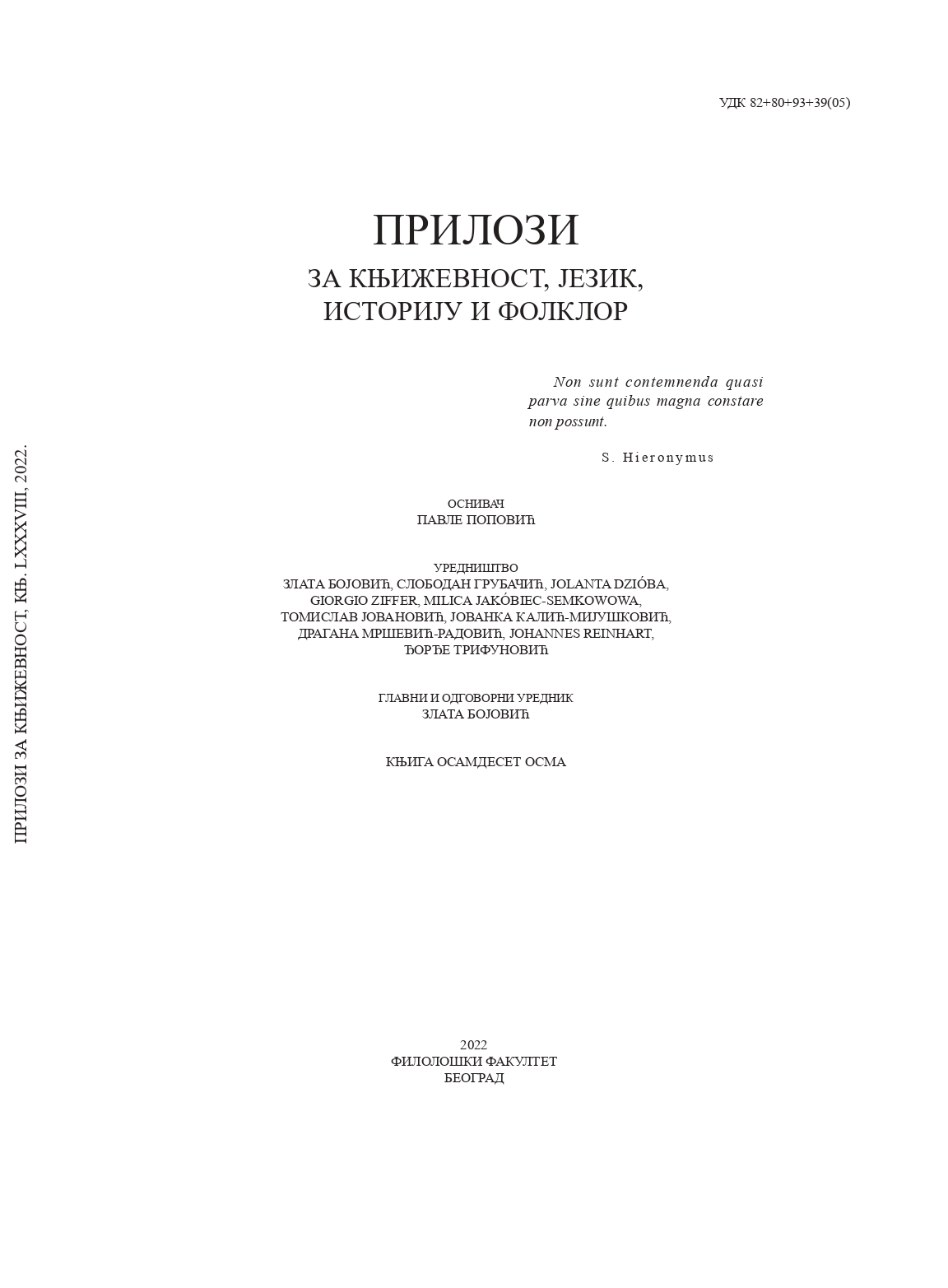ВИШЕВЕКОВНО ПУТОВАЊЕ ДЕЛИЈА КРОЗ ЈЕЗИК, КЊИЖЕВНОСТ И ИСТОРИЈУ
Keywords:
дели, делија, семантичко варирање, српски језик, турски језикAbstract
The paper is on the analyses of the usage of lexemes of Turkish origin deli and delija in Serbian. Aiming to present a complete image of the semantic transformation of these loanwords, the Serbian language, literary and historical material is compared with the relevant Turkish data. In Turkish the lexeme deli represents both an adjective and a noun, while in Serbian, there is the adjective deli and the noun delija.
The lexeme deli occurs very often in Serbian folk poems as attribute attached to the name of a brave hero (deli-Radivoje, deli-Marko) and is also an indispensable attribute attached to the names of Oguz heroes in the heroic epic poem The Book of Dede Korkut. In these epic works the adjective deli is used in the same meaning in both languages, meaning brave, fearless.
The semes brave, fearless from the semantic content of lexeme delija, meaning a member of a cavalry unit of the Ottoman army, have induced secondary meanings brave man, hero; strong, personable man.
The primary meaning (crazy) which the adjective deli has in Turkish is at the periphery of polysemantic structure in Serbian, confirmed just as a regional word. Lexemes deli and delija in Serbian and deli (adjective and noun) in Turkish have been independently semantically developed according to universal process of polysemy in both languages.

